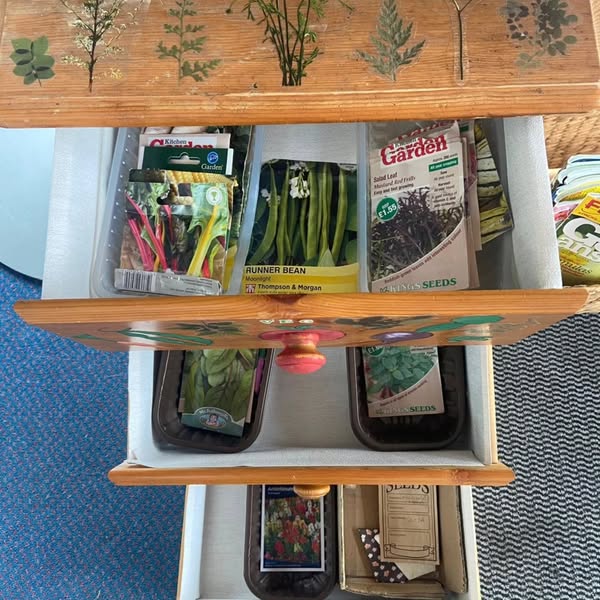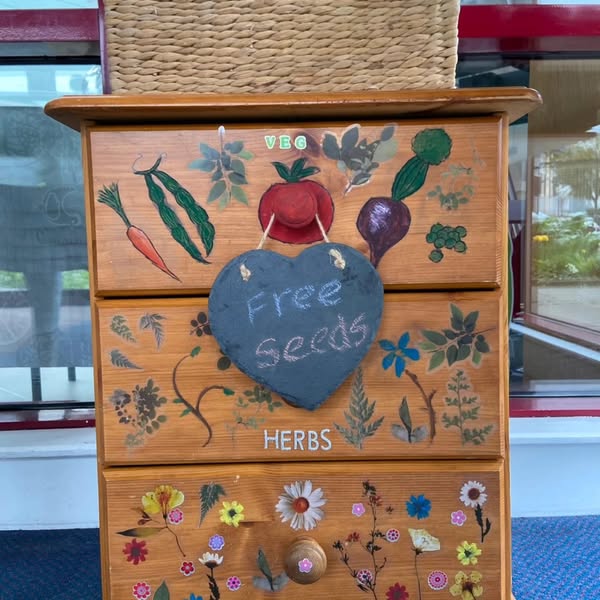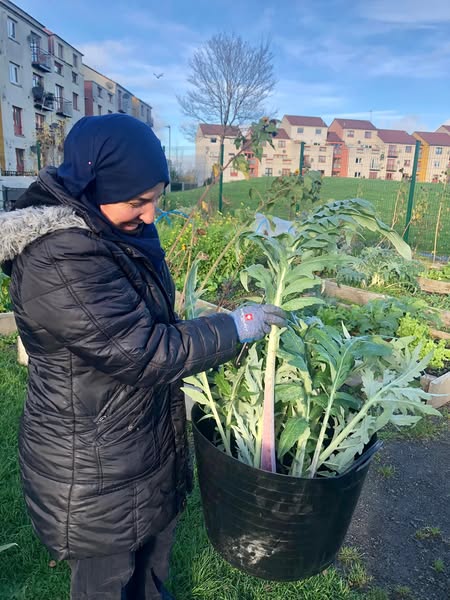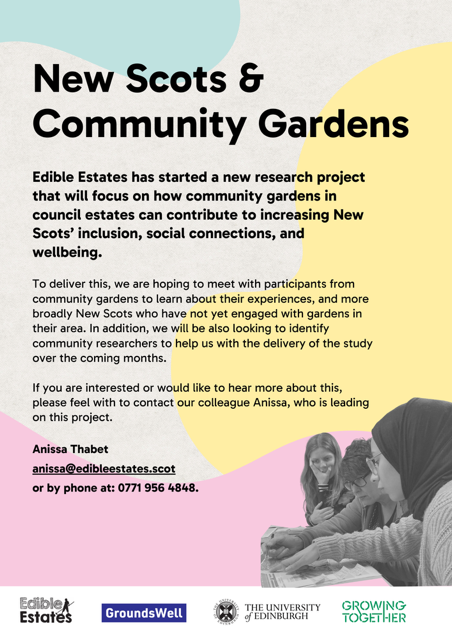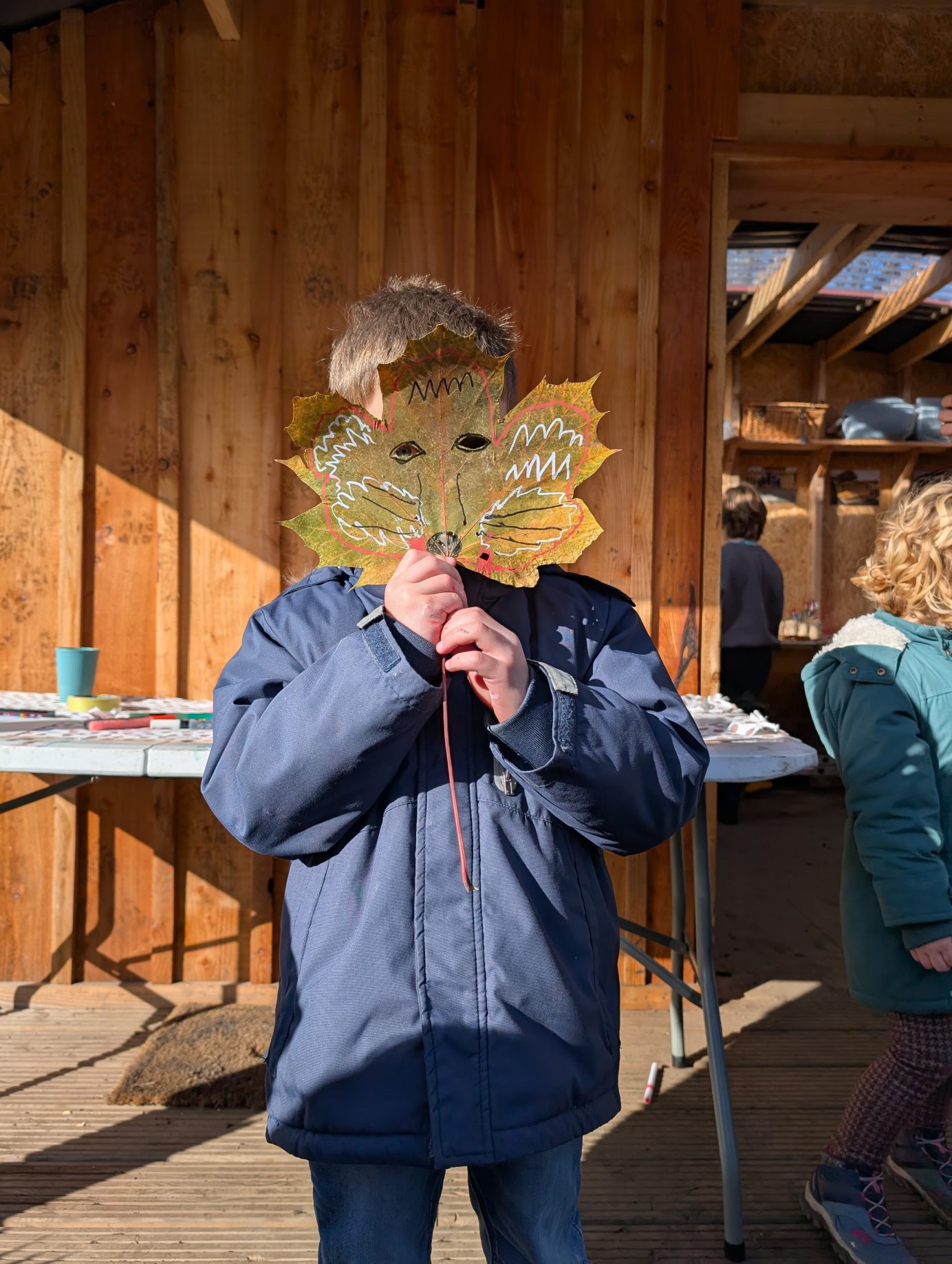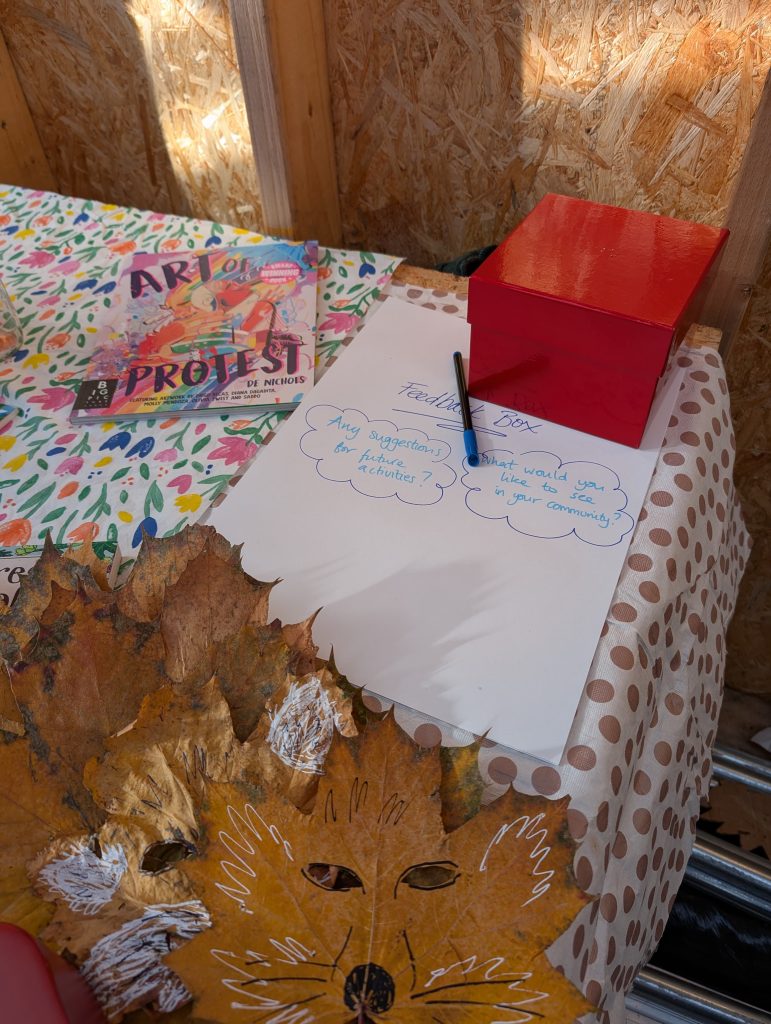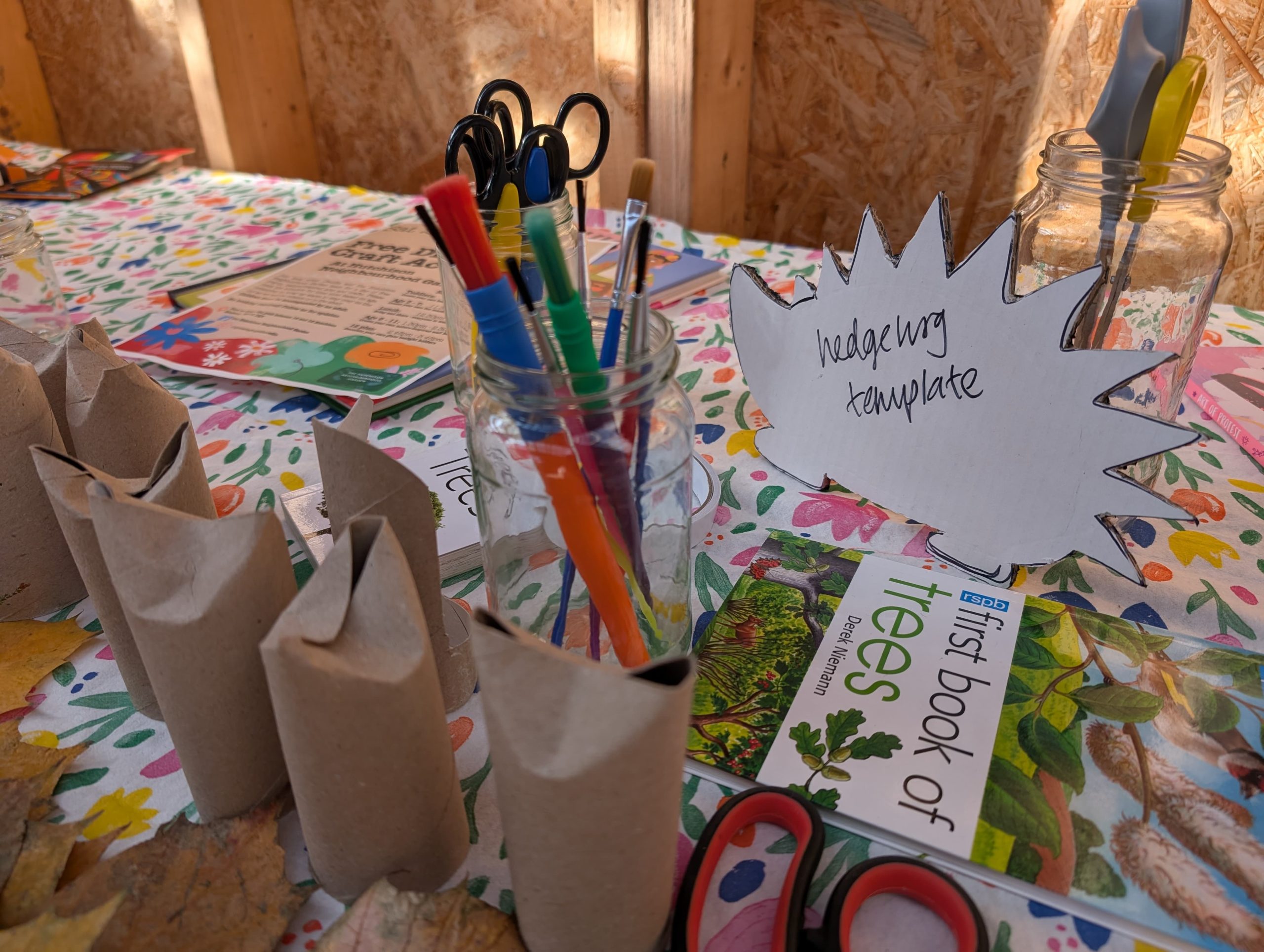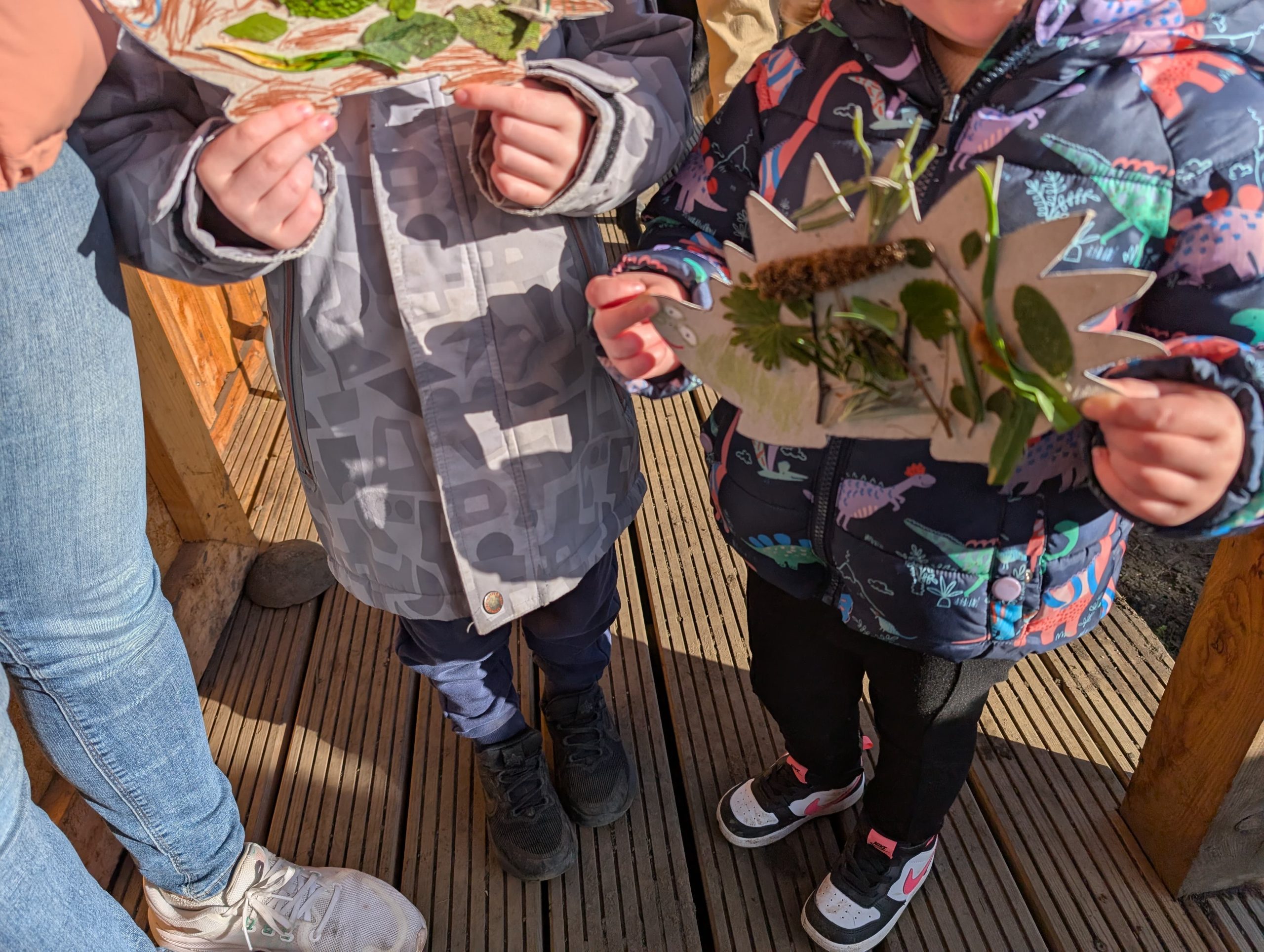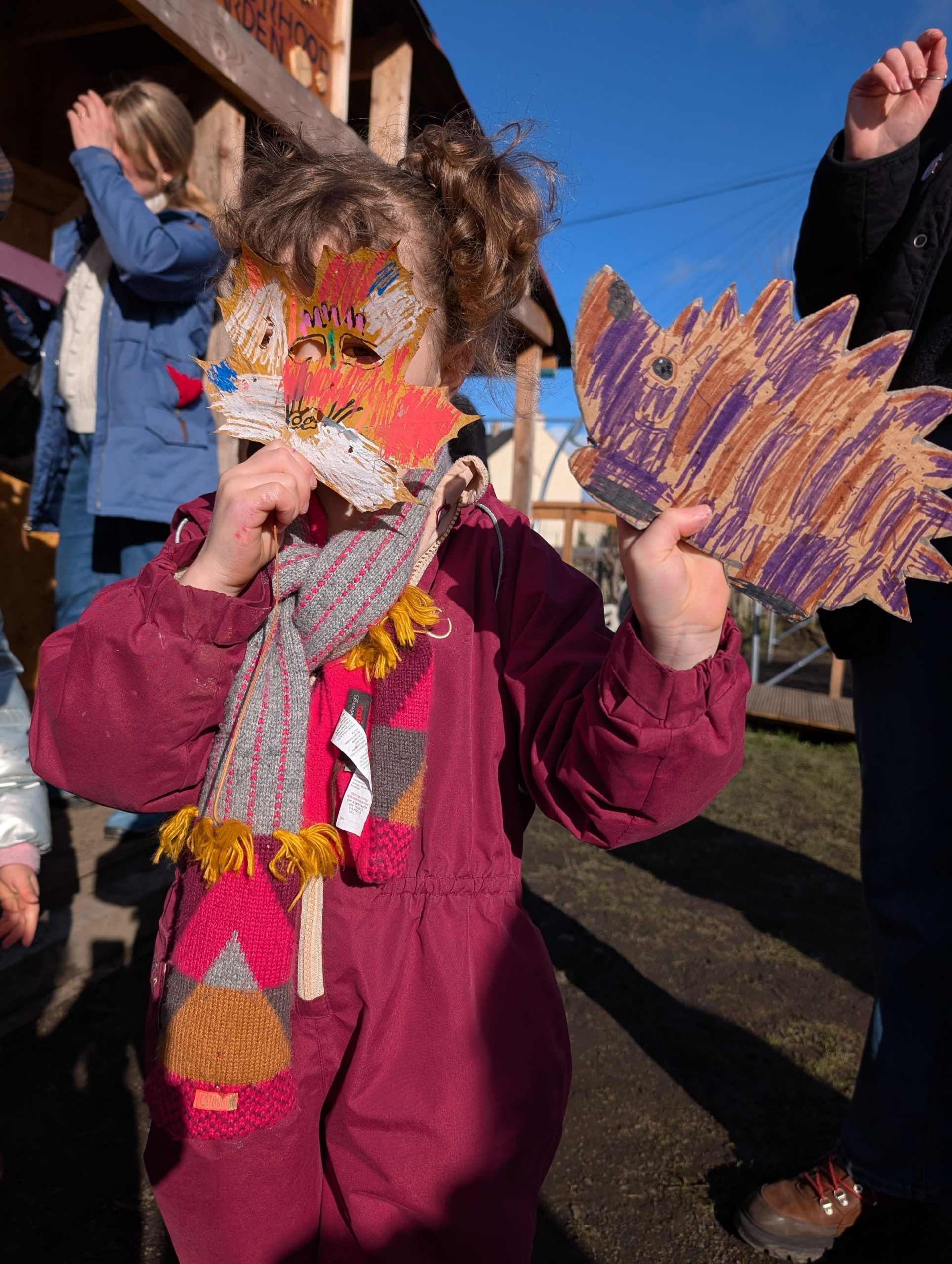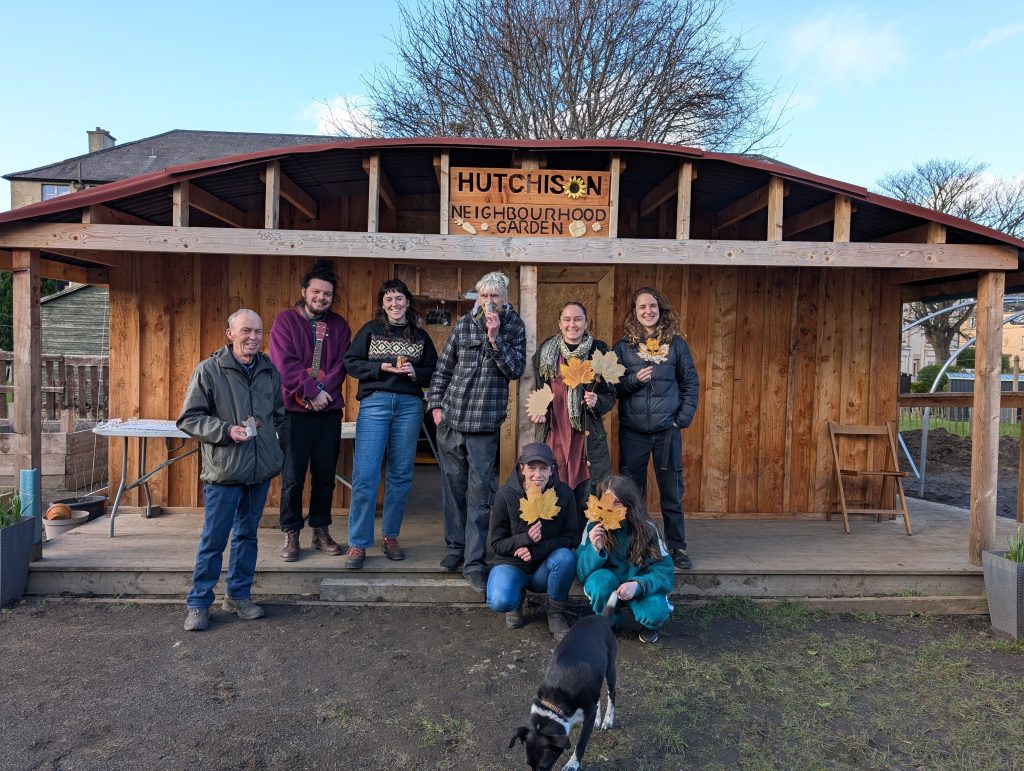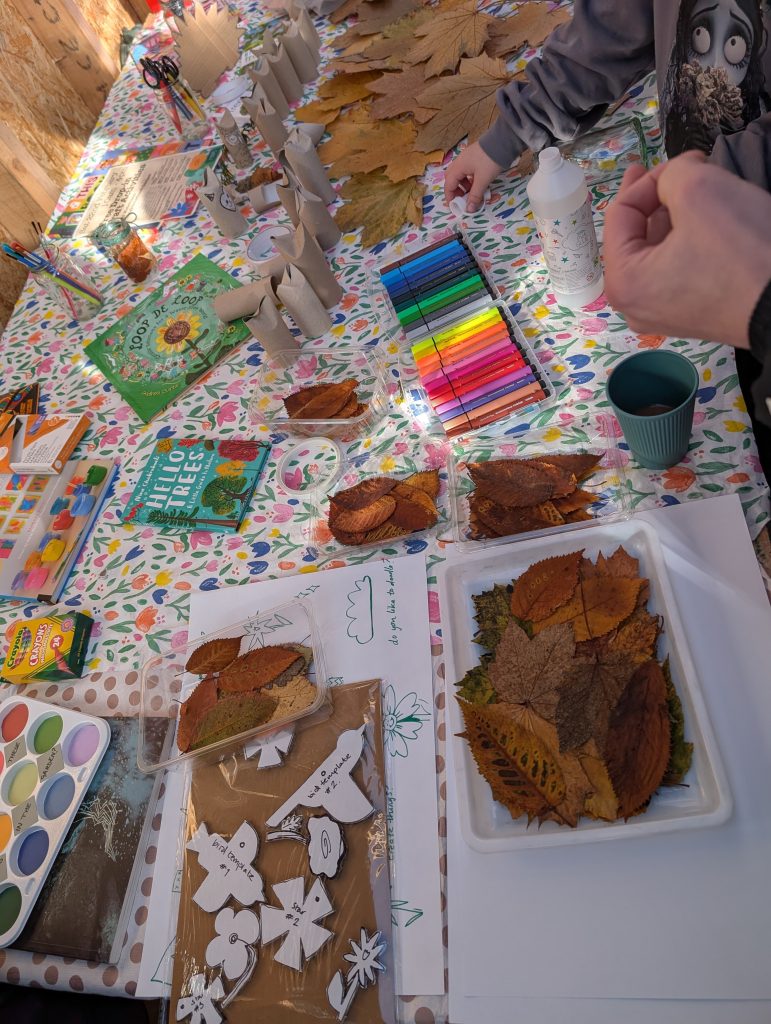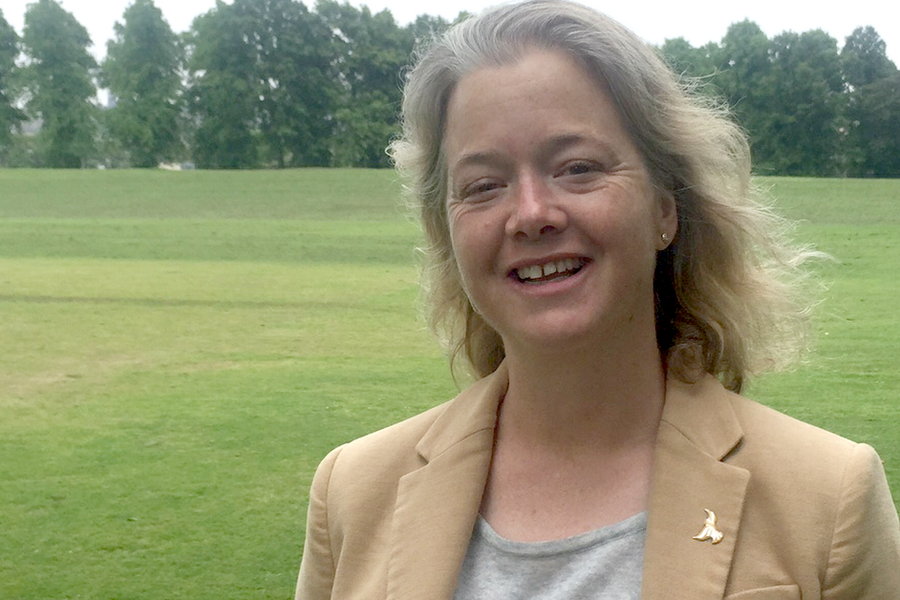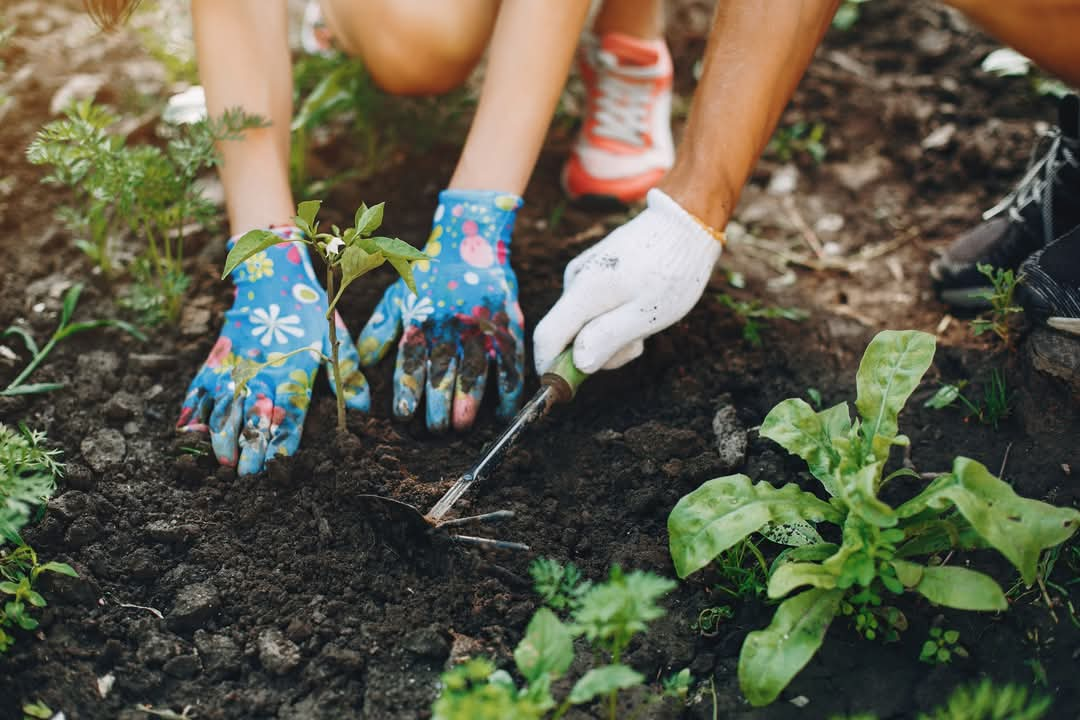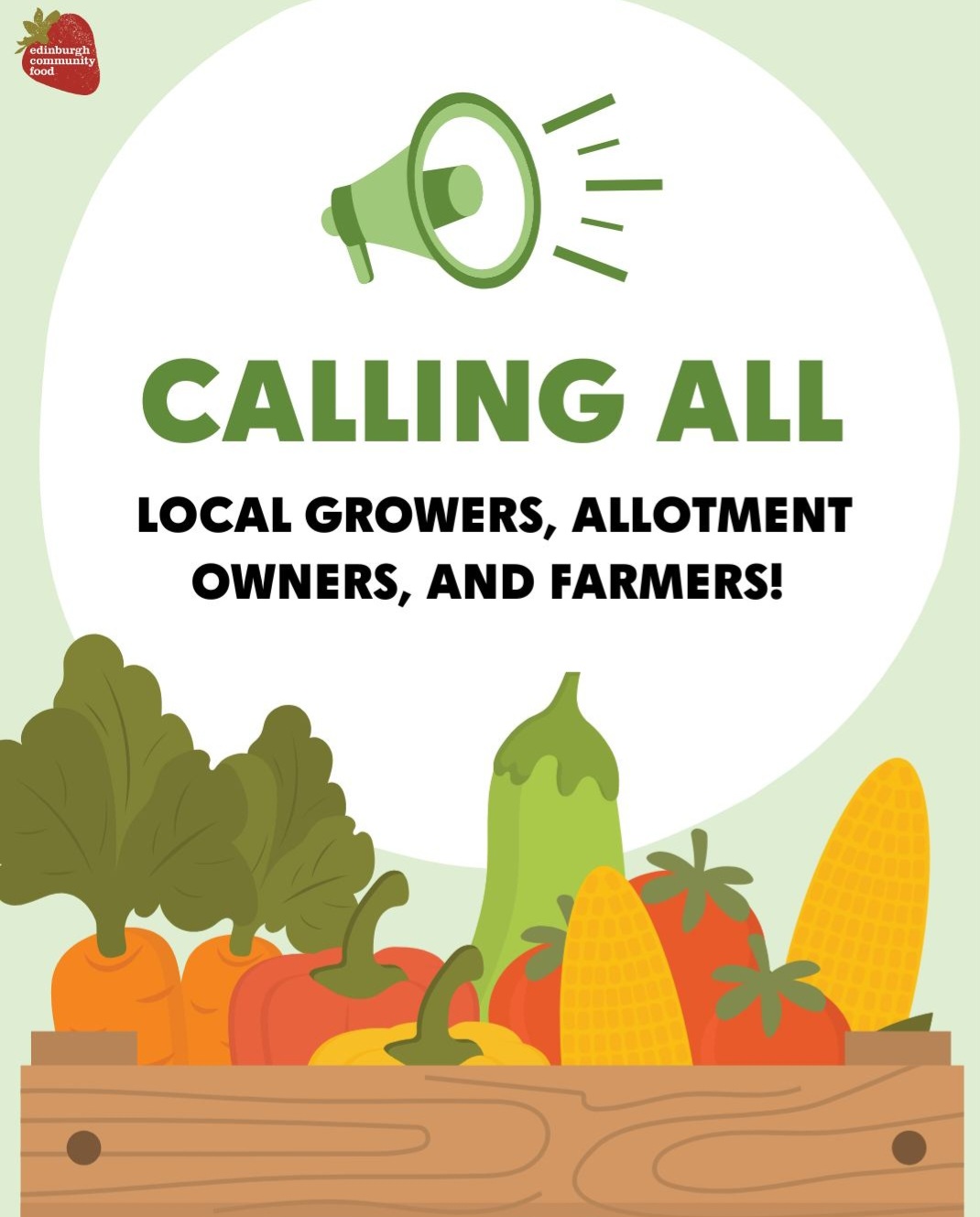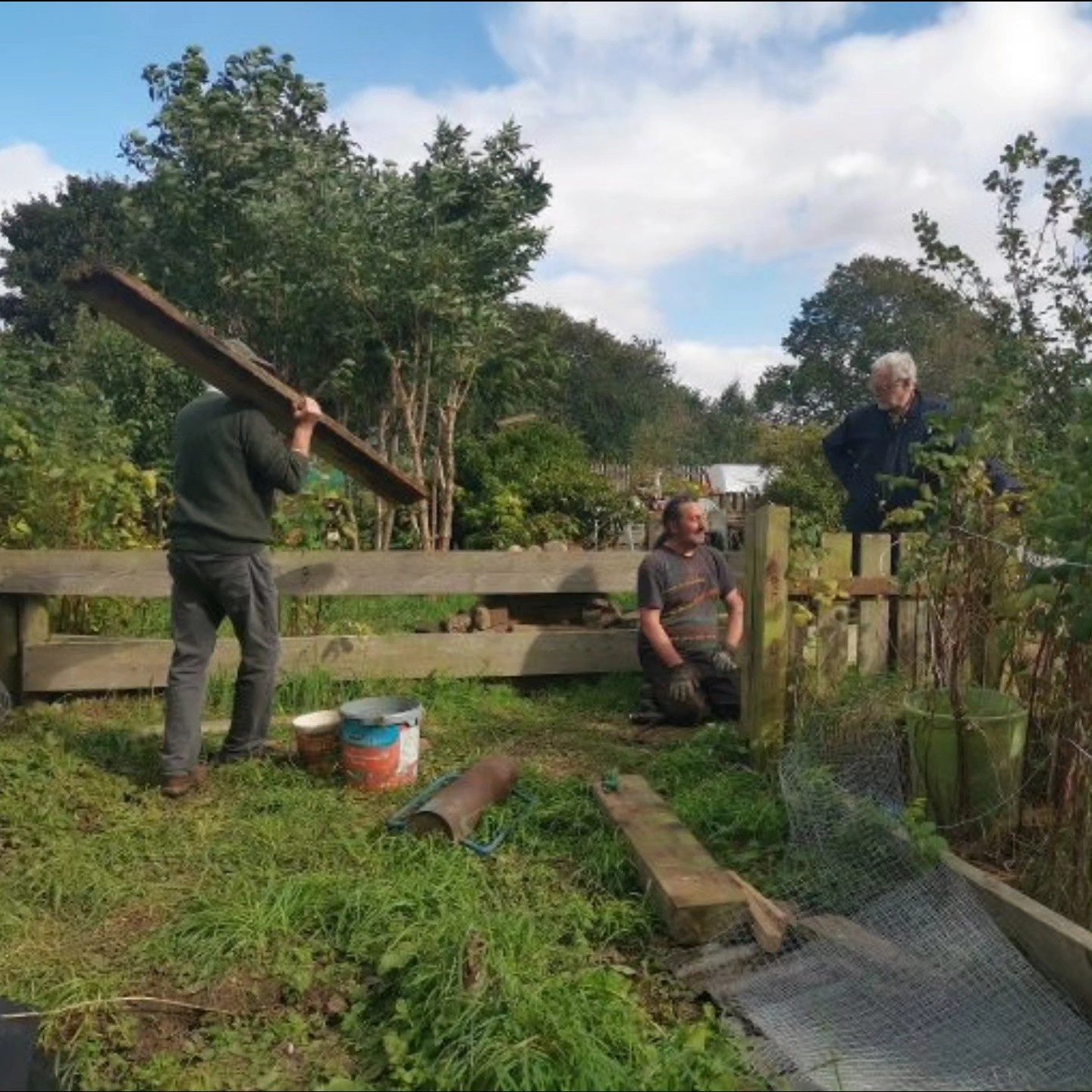We spoke with Councillor Hal Osler about ‘the right to grow’ for Edinburgh’s citizens, what this means, and how access to HRA land for communal growing benefits individuals, communities, and the city as a whole. Edinburgh councillors passed a motion on the ‘right to grow,’ tabled by Hal, in 2023, and have been exploring and developing next steps and initiatives since.
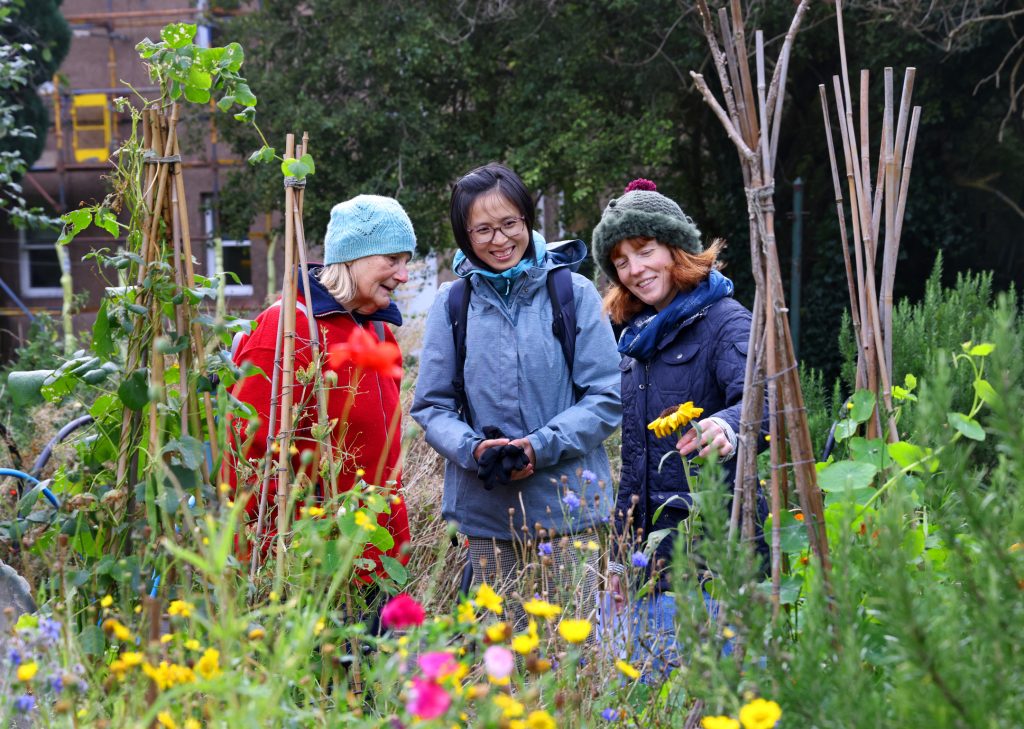
For you, what is the ‘right to grow’, and if realised, what could this look like in Edinburgh?
For me, the right to grow is the chance to simplify how individuals can reconnect with and use spare, disused land. From a planning point of view, I mean land that previously had a function, but doesn’t have a class usage currently. We can’t afford to have land that’s not productive, if it’s not given a positive function it will attract negative functions such as fly tipping.
From a person-centred point of view, it’s fundamental that individuals can sustain themselves, we need to reconnect with food as individuals, it’s something I’m deeply concerned with. If you’re only experience of food is supermarket food and ready-made meals, it desensitises you to food’s other functions – community, sharing – in other parts of Europe you see food festivals, you see community olive picking, I’m interested in how we can bring food back to community here.
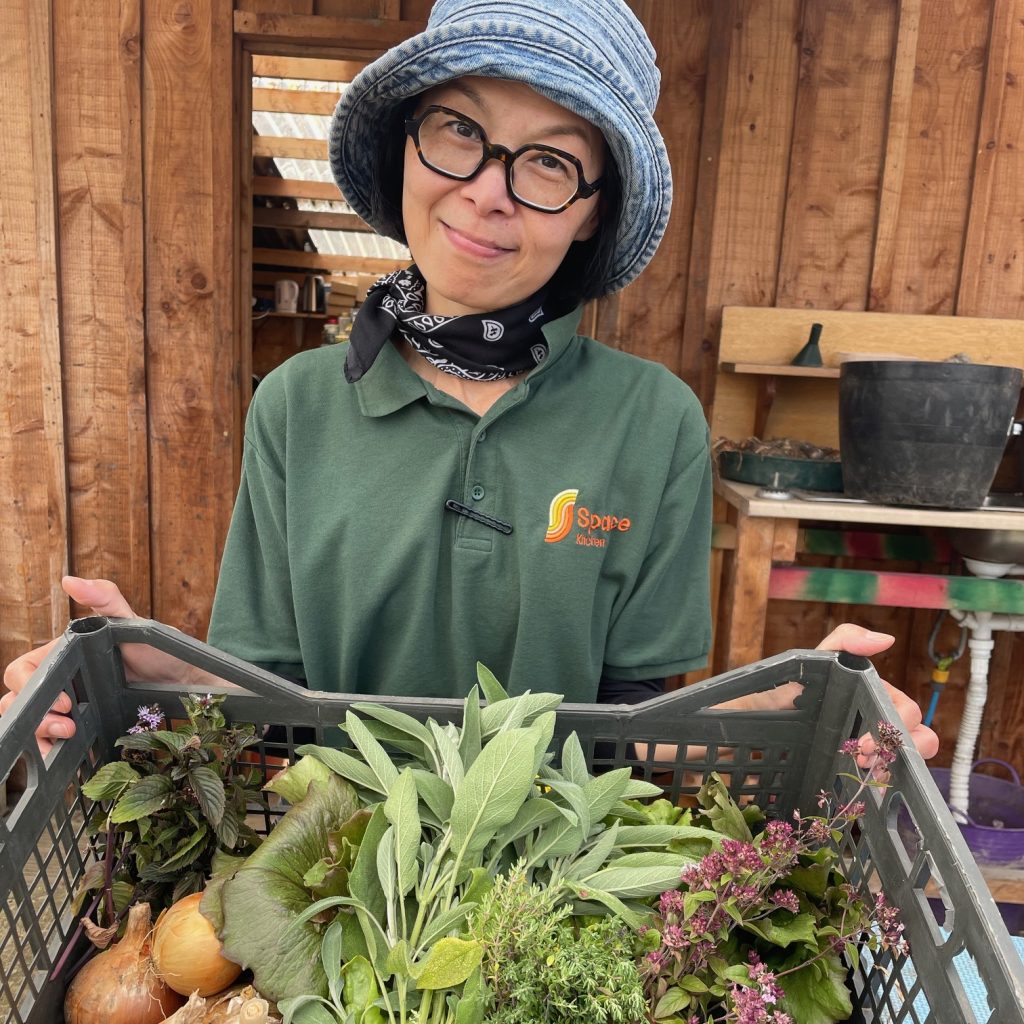
What prompted/inspired your interest in the issue, and desire to table the motion?
I grew up in the country, in an environment where we ate what we producer, what was fresh in the garden. Our land’s use was to grow produce. In the summer months there was sometimes so much we didn’t know what to do with it all – and that’s the positive thing about community growing, there are many people to share with so there isn’t that waste from over-abundance.

What benefits do you believe the ‘right to grow’ can bring on an individual, community, and city-wide level?
It’s huge for physical and mental health. Gardening is about nurturing, it stimulates the brain, and lets you destress. It establishes community focus; it gives individuals pride and something to be attached to – there’s nothing like the joy planting a tiny seed and watching it tiny bear fruit. It teaches people patience; it moves us away from the instant gratification of fast food and towards feeling connected to our food. It gives us the chance to sit together and enjoy meals, rather than shoving it down. It should be about getting a sense of achievement from what we’ve grown and then prepping, savouring, and enjoying it.
On a city-level, it’s huge because Edinburgh is a small city with a lot of pressure on it. We have an aspiration to be a million-tree city, and the right to grow food plays into that by aiding in biodiversity and flood prevention – grass alone doesn’t do very much. All our greenspaces should be connected by biodiversity corridors, which encourage pollinators – birds and insects – and in turn lets us grow more. It’s about nature restoration and giving individuals and communities a stake in it is the easiest way to do this.
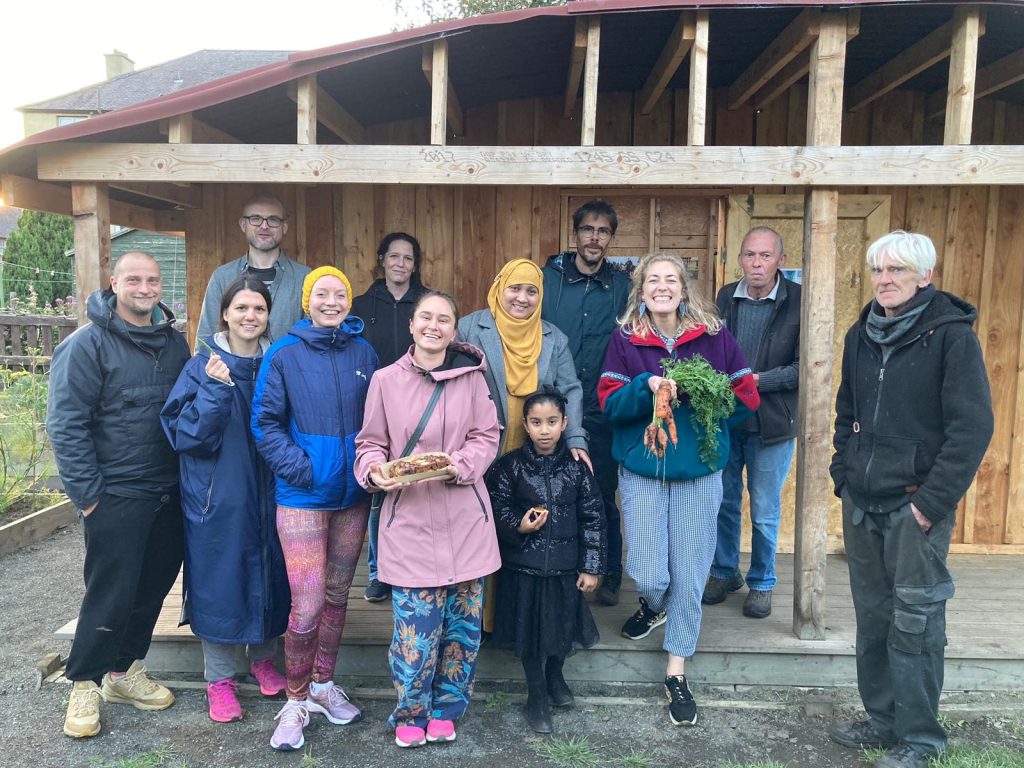
In what ways do you think the Council and third-sector food growing initiatives can work together to facilitate growing across the city?
Working together is essential. Edinburgh Council is a good provider and facilitator of services, but we need that connection with the third sector – in a lot of communities they are more trusted and experienced, they’re more embedded and therefore have more understanding of each communities’ needs. People are put off by lecturing and public health jargon, nobody wants to be lectured, and the third sector are able to put things across to their communities in a way that resonates.
Why do you believe it is important for individuals to be more connected with their food and understand where their food comes from?
It’s important on a variety of fronts. For the simple aspect of health, it’s learning how to nourish ourselves with fresh food, but more than that, everybody understands the joy of seeing the bright colours of natural food. It lets us explore different textures, what foods taste and feel like when they’re raw versus cooked, all of which makes people feel more comfortable and connected with their food – and starting this off with children is especially important, it’s pictorial for them, they can see it, let them explore their taste buds, give them more time to experiment.
I visited Broomhouse Growers and it was a joy to see everyone tasting the artichokes they’d grown – some were trying it for the first time. I got to take some away with me and make artichoke soup at home, which was delicious!
Gardens are just a different space, you hear people say they didn’t know a variety of vegetable would look that way and they want to know the differences, or that you could eat the leaves, fruits and roots of a particular plant, or they’ll be surprised they liked something. Growing encourages curiosity and gives people knowledge.
Growing food communally also allows immigrants to bring a touch of home to their neighbourhood and share the foods they’ve grown up with, creating a better sense of belonging. We also gain something new from that, we get to be curious and expand our knowledge of food, communities can be brought together through sharing food.
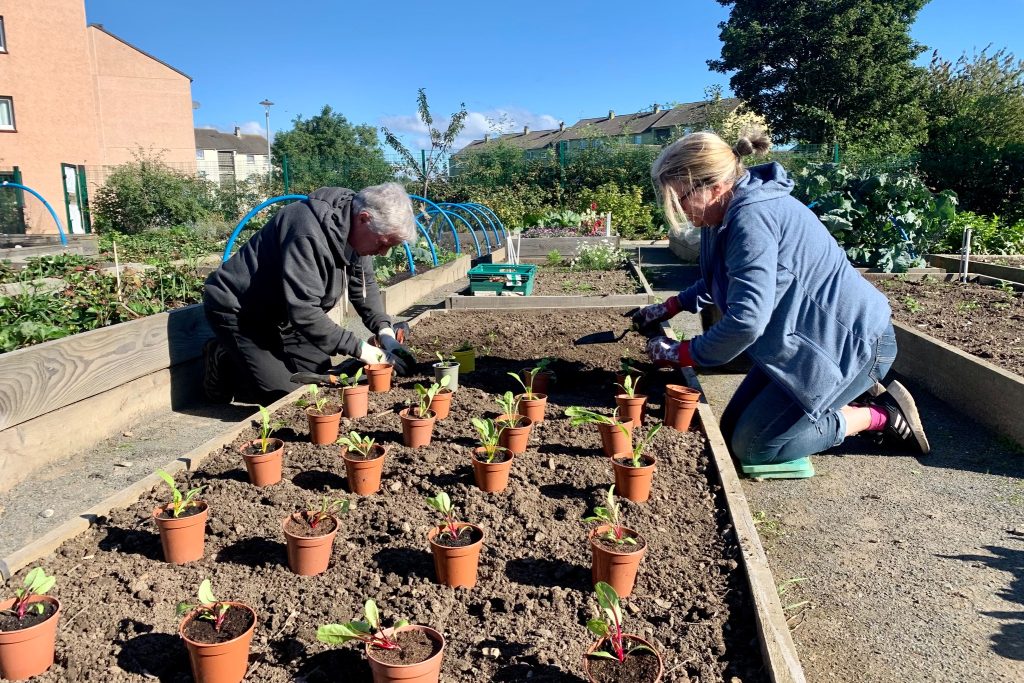
What do you think the next steps are in moving towards the right to grow?
The Council are launching a ‘Grow Your Own’ grant initiative, it’s a pilot scheme where community groups can apply for up to £5,000 to set up new growing projects. We’re also a supporting partner of Edinburgh Living Landscapes, and as part of work with that we should end up with a road map for insects and pollinators. Grass cutting paper, look at biodiversity.
Next steps are no simple thing, it’s about looking at better ways to manage and develop HRA land – looking for alternative ways it can be used rather than limiting access to it. As a Council we can develop an idea and allow individuals to explore it, but a lot of it is about changing attitudes and education, trying to convince everyone this is something we all we all want to be part of, that we can turn a corner by making small changes in our communities that fundamentally make big changes. We need to change how we view our land too – greenspaces are not supposed to be arid deserts, a wild meadow has purpose, Becoming a million tree city benefits everyone, it provides a positive natural environment, and it helps with flood prevention
Growing is such a simple joy. You have this relationship with something that’s living and growing, that will hopefully outlast you. It sustains and brings joy to others, people and wildlife alike.
We have to provide people living in an urban environment with an alternative to over-consumption, it’s about encouraging everyone to slow down and consider the cost of that consumption to themselves and what’s around them.
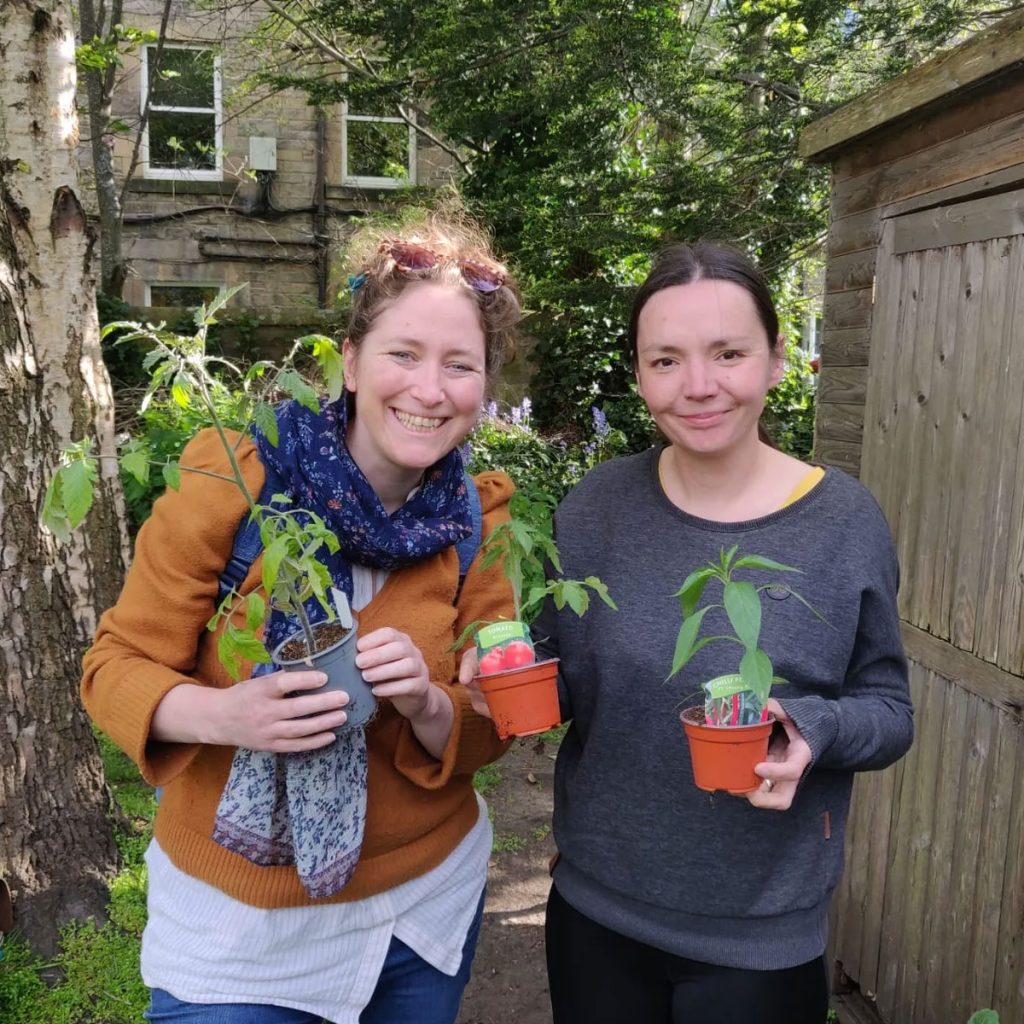
Do you think there is a lot of interest among the city’s residents to grow their own food/have the right to grow?
Yes, I do, I believe people want to grow. People are passionate, I’ve talked to different people across the city about what they’ve done and what they’ve not been able to do in terms of growing. I mean look at lockdown, people who had the ability and opportunity to grow did just that, and that’s great for individuals with gardens, but not everyone has access to land – community growing allows for that. It also makes it less terrifying; everyone fears getting something wrong when they start out, growing communally encourages positivity and opens a conversation about what you would like to grow, rather than focusing on what you can’t do.
Community gardens also serve as safe third places that bring together like-minded individuals. In a busy and chaotic life, you need that space with other people. We live in a very divided world, and we need to support people that want to come together to brainstorm and be proactive about improving their environment. Most importantly we need to support it in a way that’s sustainable, so it’s not just a flash in the pan.
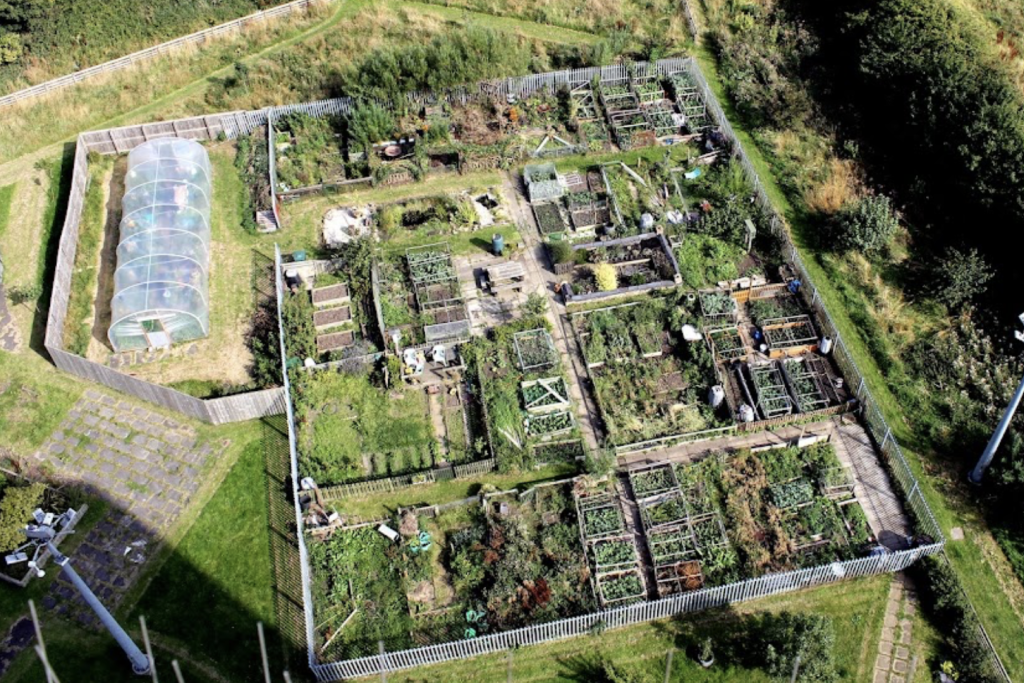
Do you see the right to grow as a key player in making Scotland a Good Food Nation?
It’s one of the many parts, but personally speaking I think it extends wider than that, its benefits go beyond food too – it’s also a key part of improving communities, reducing issues like anti-social behaviour. I want to end on something key – it has to start from the bottom up, how do we relieve the overwhelming burden of getting started from individuals and just let them grow.
You may also like…
Dumbiedykes Growers: New Garden Site Transformed For The 2025 Growing Season
